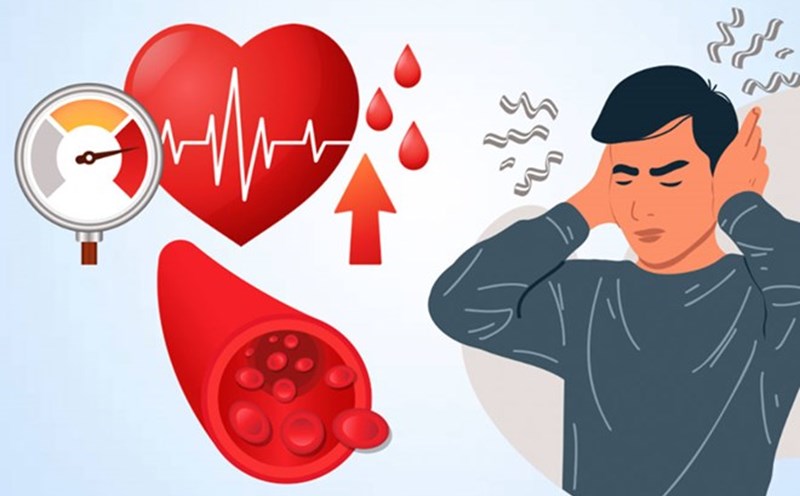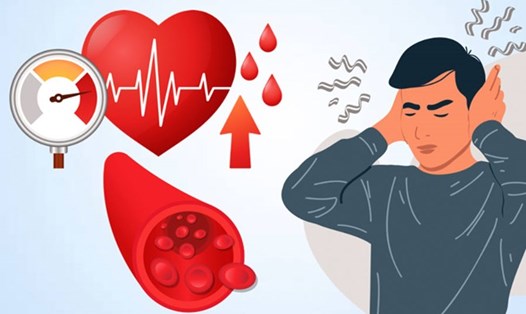Lack of sleep is a leading risk factor for high blood pressure. When you sleep less than 6 - 7 hours a night, your body cannot recover in time, stress hormones increase, leading to blood vessel constriction and high blood pressure. Insufficient sleep disrupts circadian rhythm, increasing cortisol and norepinephrine hormones that constrict blood vessels, increase risk of high blood pressure, says Dr Daniel Combs, a cardiologist at Boston University of Medicine, USA.
How does lack of sleep affect blood pressure?
Sleep provides a period of rest for the body to regenerate energy, regulate hormones and restore the cardiovascular system. During normal sleep, blood pressure drops at night, known as "night blood pressure reduction", helping the heart and blood vessels rest. When you don't get enough sleep, this process is interrupted, leading to high blood pressure and the risk of cardiovascular complications such as heart attack or stroke.
Common sleep disorders such as insomnia, sleep apnea, restless leg syndrome or drowsiness all increase the risk of high blood pressure. A 2023 study with more than 66,000 adults showed that sleeping less than six hours a night increased the risk of high blood pressure by 10%, while those with difficulty sleeping or staying sleepy had a 28% higher risk.
How to improve sleep to control blood pressure
Maintaining 7-9 hours of sleep per night is the foundation for stabilizing blood pressure, emphasizes Dr. Valerie Cacho, a sleep expert at the University of California, USA. Measures to improve sleep hygiene include: keeping a regular sleep schedule, creating a quiet, cool and dark sleeping environment, avoiding blue light from phones and computers, relaxing before going to bed, and avoiding eating too close to bedtime.
If you experience prolonged insomnia, snoring loudly, wheezing at night or excessive sleepiness during the day, you should see a sleep specialist for timely diagnosis and treatment. Some cases require CPAP intervention for sleep apnea or other sleep disorder medication.
Getting enough sleep not only helps keep your spirit alert and increase energy, but also plays an important role in maintaining stable blood pressure, reducing the risk of cardiovascular disease and other chronic diseases.











